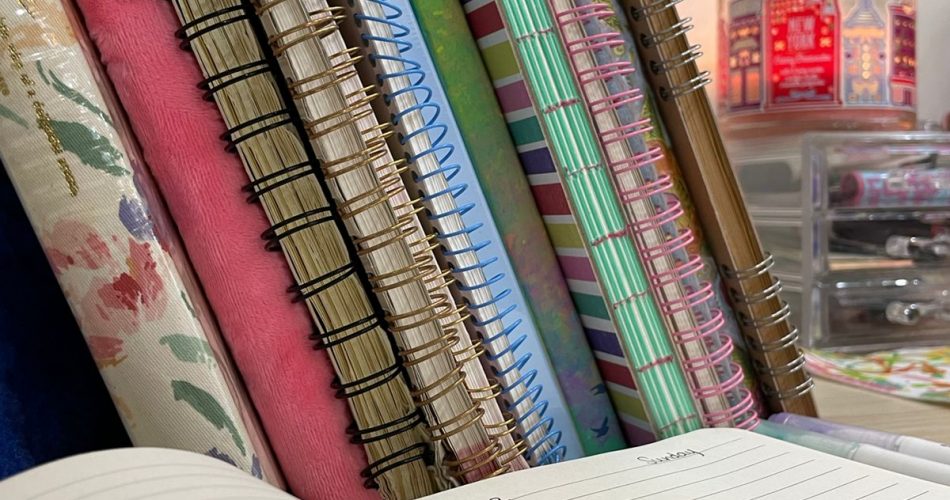Don’t you think it would be nice to re-live all your favourite moments in life? In a world that expects you to be perfect, don’t you think it would be wonderful to have a place where you can be completely transparent without anyone’s judgements?
Though memory preservation can be done in different ways like by taking photos and taking videos, the best and most reliable way to do so, in my opinion, is by writing a diary or by journaling.
Journaling is a form of selfcare and selflove, maybe even self-therapy. There are often moments in our lives when we have something that’s bothering us, but we know we can’t share it with anyone, that’s when you could write and feel a ton of weight lift off from your shoulders.
At what time of the day should you journal?
Journaling can be done anytime of the day. In mornings, you might want to write your plans for the day. (a to-do list). There’s nothing more satisfying that to know that you have accomplished everything you expected from yourself in that day.
In the afternoon, you may have experienced something exciting which you want to write down to be able to express your raw emotions on the paper.
At night, writing a diary can be the best way to end your busy day. Taking out some time for yourself, recalling all the events that happened that day and highlighting what you felt grateful for or what you learnt throughout the day can be very therapeutic.
Why journaling might be for you
There are different reasons why you might want to start journaling. Want to record your dreams that you see at night? Here’s a tip: after you wake up, (please don’t use your phone immediately) take five to ten minutes to recall what you saw in your dream. Collect the bits of the events that you remember and after some time, they will start making sense before you realise that you can easily write it down in the form of a story. It won’t be easy at first, if you are someone who usually doesn’t remember dreams, but like everything, it will get better with practice. Having a diary full of mysterious and weird stories can be interesting. Your dream journal might provide you with an idea for your next novel, just saying. That’s a dream journal. Similarly, you can start a Religion journal to keep a track of your prayers and spiritual growth, scrapbook to paste photos and describe them, art journal to plan out your next epic art piece, gratefulness journal to write about everything that you’re grateful for or study journal to record your study progress and set study goals. But honestly, you don’t need a separate journal for every single category.
How will journaling help you
Journaling may help you if you are a perfectionist. When you write on a journal, you write whatever is on your mind without the chance to edit later. Unlike when you are using a computer, everything is editable. You can be working on an essay on your PC and later feel like its crap, so you start it all over. You can’t do that when you journal and the repetition of mistakes while you write in your diary can help your perfectionism fade away slowly. You start allowing yourself to make errors and realize it isn’t that big of a deal. Perfectionism isn’t always bad; it might be a big reason of your success. But as humans, going error free is not an option so if you’re a perfectionist it might get very stressful at times.
You make your own rules
Your diary doesn’t have to be clean. It can be however you want it to look like. You make your own rules. Paste photos, write notes, add stickers, make it colourful or keep it black and white, you’re free to do whatever.
What to be careful about
If you happen to start making a daily to-do list in the mornings, remember to set realistic goals. Don’t overburden yourself with unrealistic expectations because that can make you feel bad about yourself at the end of the day if you are not able to do everything that you wrote down.
Medium for journaling
Though the best experience of journaling can be achieved by writing on a physical diary or notebook, it shouldn’t stop you from typing your day’s entry on your PC or mobile phone. If you think that writing on a diary isn’t something for you, you can feel free to do what suits you best. As long as you are writing, its fine because that’s what matters in the end.
Going back in time with your journal
The best thing about journaling is that you can go back in time to read your thoughts from 2,3,5, maybe even 10 or 20 years ago. Imagine being able to re-live every moment of your childhood. Won’t it be nice to look back at your immature self, complaining about things you don’t even bother about anymore and feeling how much you’ve changed and grown. It might feel cringy at some point but by re-reading your diary again and again, you will start accepting your old self, you will be able to appreciate all the good and bad moments that happened in your life that have helped you to shape you into the person that you are today.
How often should you journal?
Some people write daily. Some write once in a week or once a month, even once a year. In some cases, people write only when something grand happens. My point is there’s no rule here. You should write when you feel like writing so that it would never feel like a chore.
I hope you got an idea about journaling and why it is important, and I sincerely suggest you to try writing in a diary at least once and see if it can become your next favourite hobby. Thank you for reading, have a great day.
Written By:
Aisha Raja


